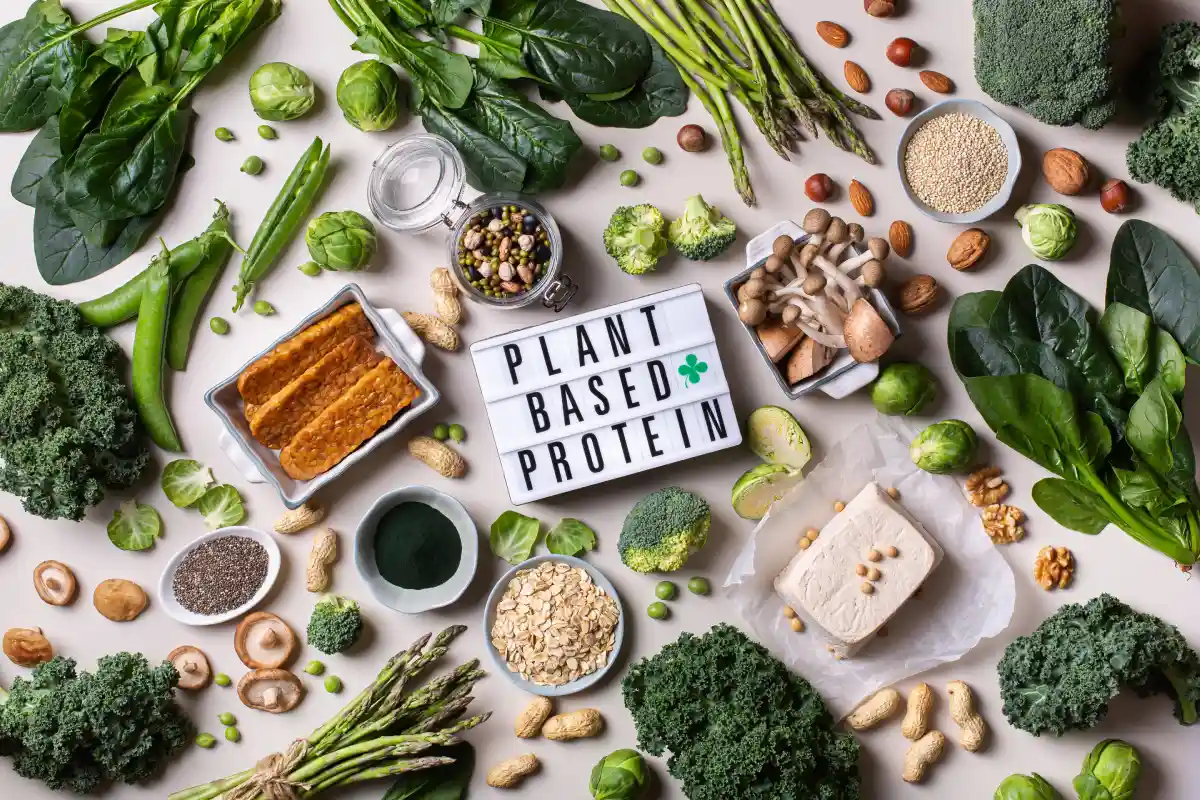Plant-Based Protein Trends: Why Plant-Based Protein Is Booming
March 25, 2025

The global food industry is undergoing a major transformation as plant-based protein trends continue to reshape market demand and business strategies. The market for plant-based protein is projected to reach $23.4 billion by 2028, driven by changing dietary preferences, sustainability concerns, and rapid advancements in food technology.
For food manufacturers and business owners, this shift presents both opportunities and challenges. How can companies effectively integrate sustainable protein sources into their product lines? What innovations are driving this market forward? And how can businesses stay competitive in a rapidly evolving protein industry?
This article explores the reasons behind the growth of plant-based protein, the latest innovations, evolving market preferences, and strategic insights for manufacturers and food brands looking to capitalize on this booming trend.
Why Plant-Based Protein Is Booming
The increasing popularity of plant-based diet growth is driven by several key factors impacting both markets and businesses:
1. Market Demand and Market Trends
Markets are becoming more health-conscious, environmentally aware, and interested in ethical food choices. This has led to a rising demand for plant-based protein, particularly in the packaged food and beverage sectors. The flexitarian movement, where markets mix plant and animal protein, has also contributed to the rapid expansion of this market.
2. Sustainability and Corporate Responsibility
Governments and organizations worldwide are advocating for sustainable protein sources to reduce the environmental impact of traditional animal agriculture. Plant-based proteins such as soy, pea, and mung bean require fewer resources and generate lower carbon emissions, aligning with corporate sustainability goals and ESG (Environmental, Social, and Governance) initiatives.
3. Advancements in Food Technology
Food manufacturers are investing in future vegan protein innovations, including precision fermentation, extrusion technology, and hybrid protein development. These innovations are addressing previous challenges in texture, taste, and nutritional completeness, making plant-based proteins more viable for mass-market adoption.
- Regulatory and Investment Support
The food industry is seeing increased investment in alternative proteins, with governments providing incentives for sustainable food production. Additionally, regulatory frameworks are evolving to ensure plant-based protein products meet safety, labeling, and nutritional standards, enabling greater market penetration.
Top Innovations in 2025
The protein industry trends for 2025 indicate significant technological advancements shaping the next generation of plant-based proteins:
1. Fermentation-Based Proteins
The use of microbial fermentation to produce highly digestible and nutrient-dense proteins is revolutionizing the industry. Companies are leveraging this technology to enhance amino acid profiles, making plant proteins nutritionally comparable to animal-based proteins.
2. Hybrid Protein Solutions
As the pea vs soy protein debate continues, manufacturers are developing hybrid protein solutions that blend multiple plant-based sources for better functionality and taste. This allows for improved texture and enhanced amino acid composition, making products more appealing to mainstream markets.
3. Alternative Protein Sources
Beyond soy and pea, newer sources such as chickpea, hemp, and fava bean are emerging as key sustainable protein sources. These ingredients provide unique nutritional benefits, improved digestibility, and allergen-friendly options for food brands.
4. Advanced Processing Techniques
Extrusion, high-moisture texturization, and flavor engineering are improving the sensory qualities of plant-based proteins. These techniques enable manufacturers to create meat and dairy alternatives that closely mimic the texture and mouthfeel of traditional animal-based products.
Market Preferences and Market Growth
The protein industry trends highlight key shifts in market behavior and market expansion:
1. Growing Adoption in the Food Service Industry
Plant-based proteins are no longer limited to niche markets. Major fast-food chains, restaurants, and meal delivery services are incorporating plant-based options into their menus, signaling widespread adoption.
2. Demand for Clean Label and High-Protein Foods
Modern consumers seek transparency in food production. Products with minimal ingredients, high protein content, and clear labeling (e.g., non-GMO, organic, allergen-free) are gaining traction in retail and foodservice sectors.
3. Expansion in Functional and Sports Nutrition
Athletes and health-conscious markets are driving demand for vegan protein products in the sports nutrition sector. Companies are formulating plant-based protein powders and functional foods tailored to support muscle recovery, endurance, and overall wellness.
4. Private Label and Co-Manufacturing Opportunities
With increasing demand, food brands are exploring private-label partnerships with co-manufacturers specializing in plant-based protein production. This allows businesses to scale quickly without heavy investment in infrastructure.
Key Considerations for Food Manufacturers and Business Owners
For companies looking to enter or expand in the plant-based protein market, the following strategic considerations are crucial:
1. Supply Chain and Ingredient Sourcing
Establishing a reliable supply chain for sustainable protein sources is essential. Manufacturers must ensure consistent quality, scalability, and cost-effectiveness in raw material procurement.
2. Product Differentiation and Branding
With increasing competition, brands must focus on innovation, taste, and value propositions to differentiate themselves. Factors such as texture enhancement, clean-label formulations, and fortified protein content can add a competitive edge.
3. Regulatory Compliance and Labeling
Navigating food regulations related to plant-based diet growth is critical. Businesses must comply with regional labeling standards, allergen declarations, and nutritional claims to ensure smooth market entry.
4. Distribution Channels and Market Expansion
Understanding market behavior across different regions helps in optimizing retail and e-commerce strategies. Expanding into protein industry trends such as meal kits, direct-to-consumer (DTC) sales, and foodservice collaborations can drive business growth.
The Future of Plant-Based Protein
Tapioca Syrup vs. Corn Syrup: Key Differences for Manufacturers
Conclusion
The rise of plant-based protein trends represents a significant shift in the global food landscape. For food manufacturers, embracing plant-based innovations is not just about meeting market demand—it’s about driving long-term business growth, sustainability, and competitive differentiation.
Explore Satoria Nutrisentials for Premium Plant-Based Ingredients
For businesses looking to develop high-quality plant-based protein products, Satoria Nutrisentials offers premium ingredient solutions tailored for food manufacturers. Contact us today to explore our innovative plant-based protein offerings and stay ahead in the evolving food industry.